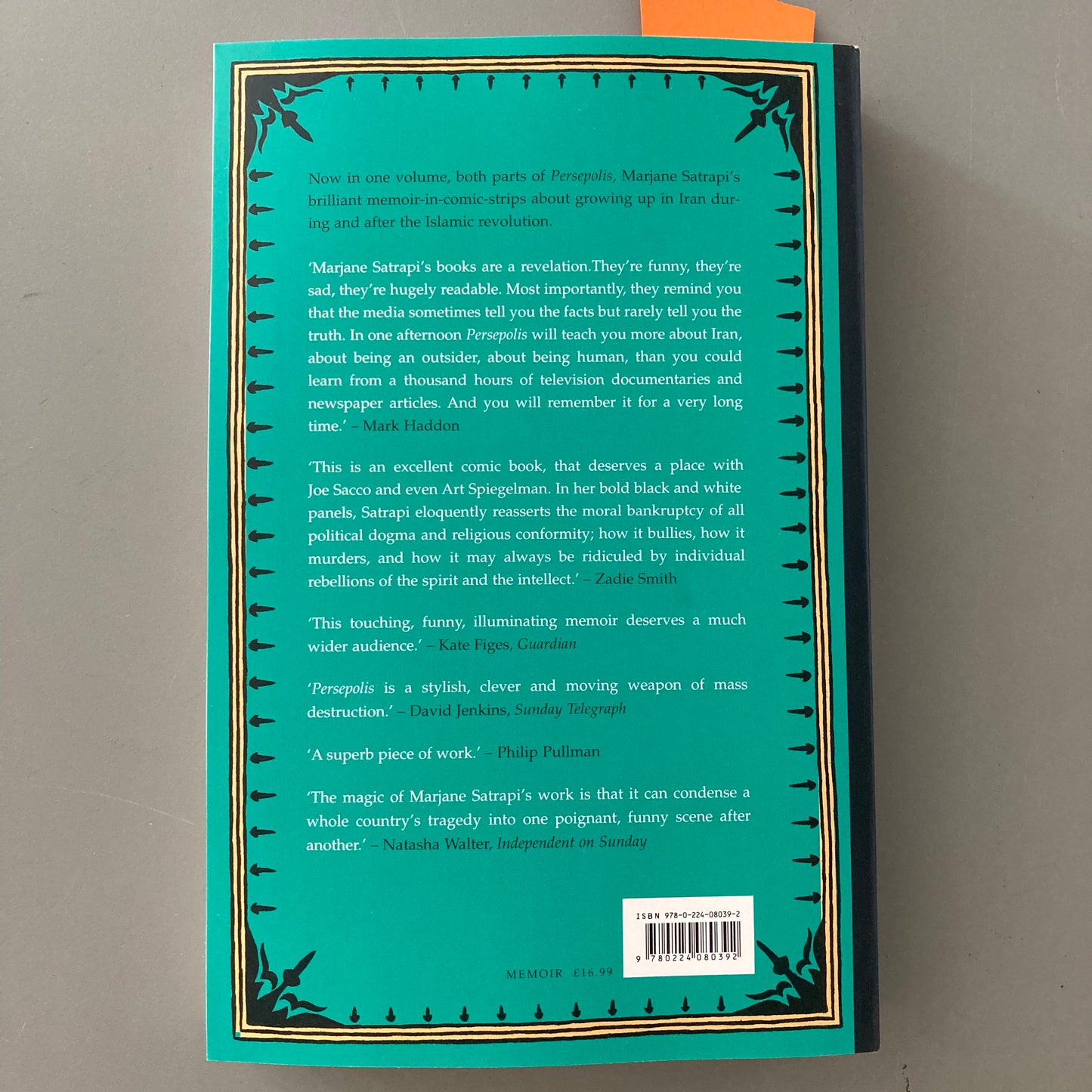Persepolis
Persepolis
Couldn't load pickup availability
By Marjane Satrapi. Published by Jonathan Cape.
Softcover, 352 pages, B&W 2006 (originally published in French 2000-2003)
Wise, often funny, sometimes heartbreaking, Persepolis tells the story of Marjane Satrapi's life in Tehran from the ages of six to fourteen, years that saw the overthrow of the Shah's regime, the triumph of the Islamic Revolution and the devastating effects of war with Iraq.
The intelligent and outspoken child of radical Marxists, and the great-grandaughter of Iran's last emperor, Satrapi bears witness to a childhood uniquely entwined with the history of her country. Persepolis paints an unforgettable portrait of daily life in Iran and of the bewildering contradictions between home life and public life.
Amidst the tragedy, Marjane's child's eye view adds immediacy and humour, and her story of a childhood at once outrageous and ordinary, beset by the unthinkable and yet buffered by an extraordinary and loving family, is immensely moving. It is also very beautiful; Satrapi's drawings have the power of the very best woodcuts.
'The magic of Marjane Satrapi's work is that it can condense a whole country's tragedy into one poignant, funny scene after another' Independent on Sunday
**ONE OF THE GUARDIAN'S 100 BEST BOOKS OF THE 21st CENTURY**
Here is the fascinating and equally unforgettable sequel to Persepolis, Marjane Satrapi's memoir-in-comic strips of growing up in Iran during the Islamic Revolution. Persepolis ended on a cliffhanger in 1984, just as fourteen-year-old Marjane was leaving behind her home in Tehran, escaping fundamentalism and the war with Iraq to begin a new life in the West.
Here we follow our young, intrepid heroine through the next eight years of her life: an eye-opening and sometimes lonely four years of high school in Vienna, followed by a supremely educational and heartwrenching four years back home in Iran. Just as funny and heartbreaking as its predecessor - with perhaps an even greater sense of the ridiculous inspired by life in a fundamentalist state - Persepolis 2 is also as clear-eyed and searing in its condemnation of fundamentalism and its cost to the human spirit. In its depiction of the universal trials of adolescent life and growing into adulthood - here compounded by being an outsider both abroad and at home, and by living in a state where you have no right to show your hair, wear make-up, run in public, date, or question authority - it's raw, honest, and incredibly illuminating.





